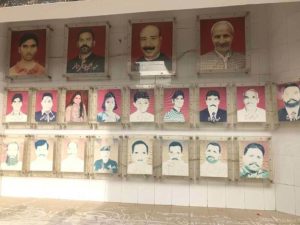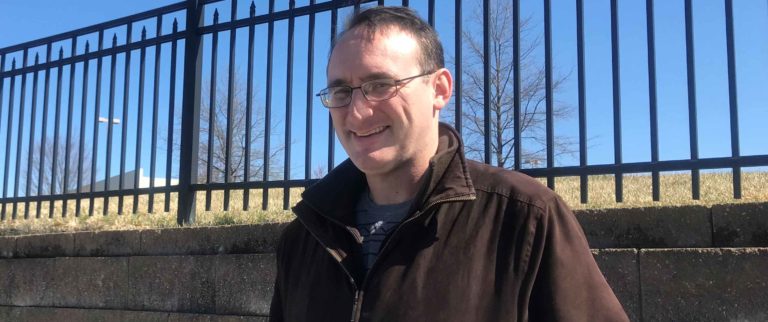
 HAVRE DE GRACE – What began as a friendship on Facebook with a fellow Christian half a world away led to an eye-opening and faith-affirming mission trip to the Punjab region of Pakistan for one parishioner of St. Patrick in Havre de Grace.
HAVRE DE GRACE – What began as a friendship on Facebook with a fellow Christian half a world away led to an eye-opening and faith-affirming mission trip to the Punjab region of Pakistan for one parishioner of St. Patrick in Havre de Grace.
Robert Battista, who had been researching the persecution of Christians around the world, first met his Pakistani friend on a Christian apologist site on Facebook. After commenting on each other’s posts, an online conversation began through a simple Facebook friend request.
The more Battista learned, the more he found himself inspired by how Christians in Pakistan live their faith despite persecution. He accepted an invitation to visit the predominantly Muslim country as a guest in his friend’s home.
On the first Sunday in December in 2017, Battista began the two-week mission trip more than 7,000 miles away. Exploring Lahore, Rawalpindi, Gujranwala, Faisalabad and several villages in between, he met between 20 and 30 families. He heard first-hand accounts of life-and-death struggles of being a Christian in a part of the world that lacks religious toleration.
“They are forced to work the worst jobs,” said Battista, who declined to give his Pakistani friend’s name for security reasons. “They are subject to discrimination, and even can face death.”
Many Pakistani Christians labor for 16 hours a day in the brick kilns, he noted, earning only 10 dollars a day. Most cannot afford shoes and often work in impoverished conditions barefoot. Their family homes are no larger than a walk-in closet.
What they lack in materials, they make up for in faith.
“Their faith is what keeps them going and why they live every day fearful of imprisonment and death,” Battista said. “Their faith and strength reminds me of the Apostle Paul and his moral obligation to help your brethren.”
Battista said the faith of Pakistani Christians, who risk their lives every day, is inspiring.
“That motivates me to stand by my faith and to tell the truth even if people do not want to hear it,” he said.
Battista said persecution was witnessed in many forms. In 2015, Christ Church was bombed, killing 14 people in the neighborhood of Youhanabad, a heavily Christian district of Lahore. At the same time, an attack at St. John’s Catholic Church in Youhanabad also occurred, he said.
“The harmful truth is the police and government seldom do anything against the mobs,” Battista said.
Blasphemy can earn a citizen years in prison. Women have few rights and are subject to assault, rape and slavery. Families have been known to kill Islamic women who wish to convert to Christianity for marriage, he said.

“It is one thing to hear about the persecution through the media after a minute news coverage,” Battista said, “but to witness the live events and see the suffering and fear emphasizes the magnitude of this issue.”
Battista, who has bachelor’s degree in history from Towson University and a master’s degree in Holocaust and Genocide Studies from West Chester University in Pennsylvania, gave a Dec. 16 presentation at St. Patrick about his mission trip.
“My goal in the U.S. is to bring their stories back, to explain to our citizens about the persecution these people suffer, why they’re persecuted, and what we can do to help,” he said.
Battista is raising money to build a school, help with church renovations, and build a safe house for endangered Christians. The financial donations will be used to assist families with daily meals and allowing them to learn skills so they can work and provide for themselves and families, he said.
“I also hope to find a way to get endangered Christians out of the country, but this is very costly, difficult and risky,” he said.
Battista, who is returning to Pakistan in August, said he wants people to understand that persecution against Christians is widespread and well-funded.
“It’s a world-wide epidemic that has been going on for a long time,” he said.
Read more “Faces of Faith” profiles here.


